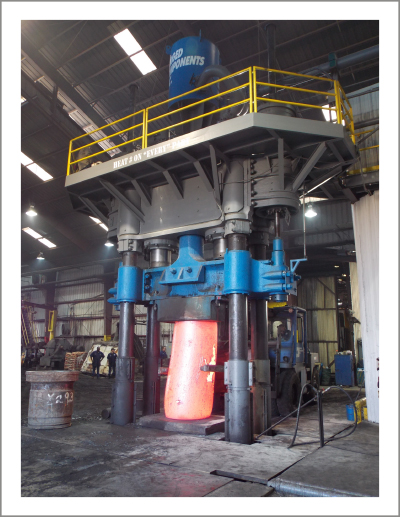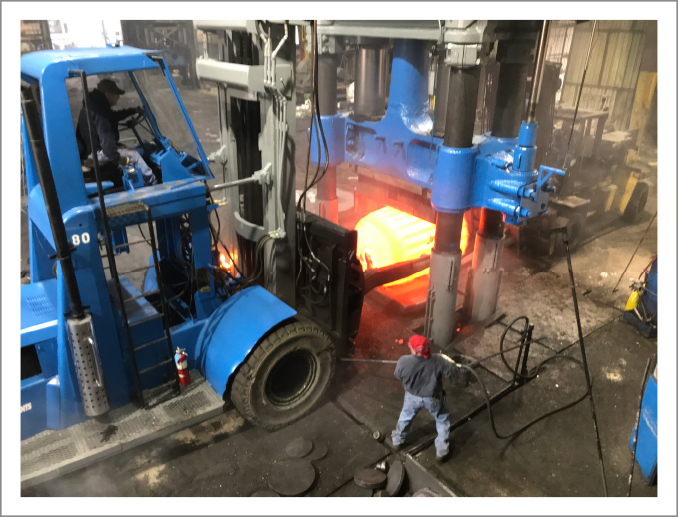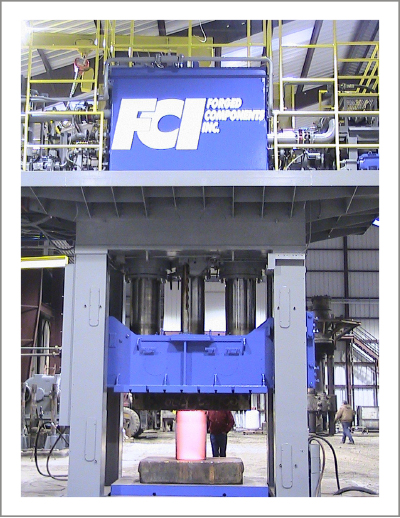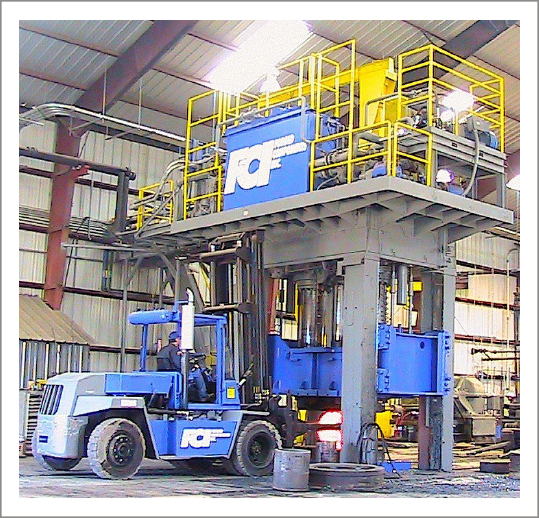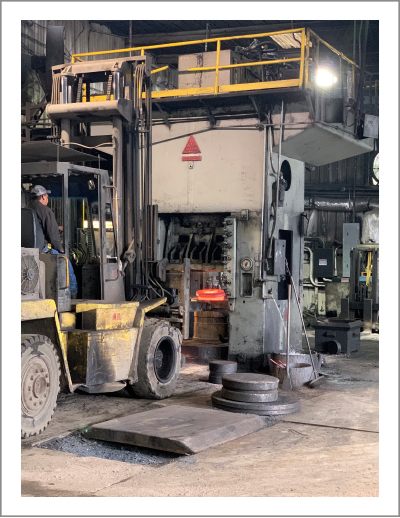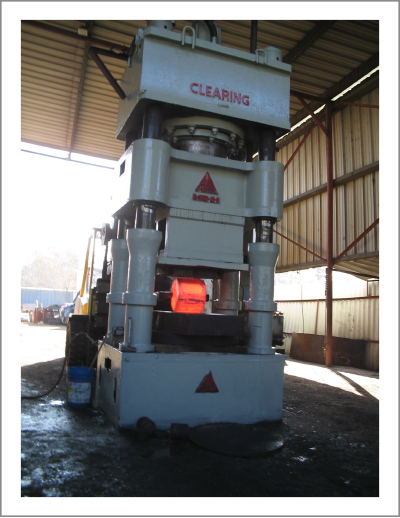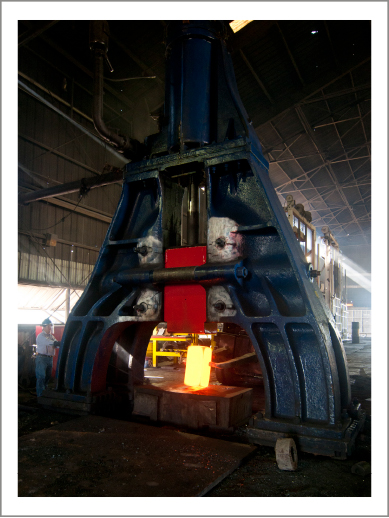FORGING
FORGING MATERIALS
We inventory the following raw material and use it for forging:
- Carbon & Low Alloy Steel
- Stainless Steel
- Chrome Moly
- Nickel Alloys
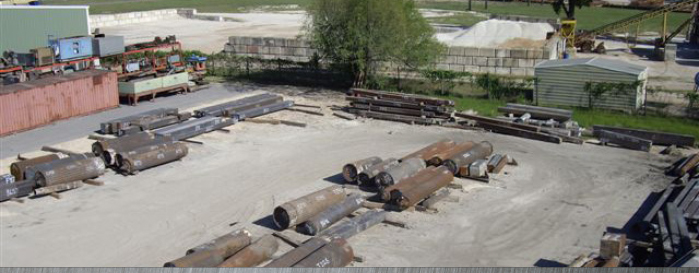
At Forged Components, we manufacture products using a variety of metals and alloys, depending on the specifications and requirements of the end-use applications. Here are some common materials used in the forging of flanges and pressure vessels:
Carbon Steel: One of the most popular materials for forging due to its toughness, ductility, and strength. It is cost-effective and widely used in construction, automotive, and industrial equipment.
Alloy Steel: Contains additional elements like chromium, nickel, and molybdenum, which enhance its mechanical properties. Alloy steel is used for parts that require higher strength and resistance to wear and fatigue.
Stainless Steel: Known for its corrosion resistance, stainless steel is used in applications where both the properties of steel and resistance to corrosion are required. It is commonly used in the gas, oil and petrochemical industries.
Aluminum: Lightweight and corrosion-resistant, aluminum is favored for applications where weight is a critical factor, such as in aerospace, automotive, and some consumer goods. It is easier to forge than steel and has excellent conductivity.
Titanium: This metal is exceptionally strong, lightweight, and resistant to corrosion. Titanium forgings are often used in critical applications where durability and performance are paramount.
Nickel Alloys: These are extremely resistant to heat and corrosion, making them suitable for high-temperature environments, such as jet-engine components, chemical plants, and oil and gas extraction.
Magnesium: Magnesium alloys are the lightest structural materials available, used in applications where weight reduction is critical, such as in aerospace and certain automotive parts.
Inconel: A type of nickel-chromium alloy known for its ability to withstand extreme temperatures and corrosion, often used in jet engines, turbine blades, and nuclear reactor applications.
Monel: A nickel-copper alloy with high strength and resistance to a range of acids and alkalis, commonly used in marine applications and chemical processing equipment.
EQUIPMENT
Manufacturing pressure vessels and forged flanges involve a variety of specialized equipment designed to handle heavy-duty materials and ensure high precision and quality. Here’s an overview of the key equipment FCI uses in the manufacturing process:
Pressure Vessels
Heat Treatment Furnaces: Used for stress relieving, normalizing, and tempering the welded structures to improve their mechanical properties and reduce residual stress.
Hydraulic Presses: Employed for forming and shaping parts, as well as for flange forming on the ends of the vessels.
Drilling and Machining Equipment: Used for creating precise holes and for machining surfaces to meet exact specifications, necessary for the assembly of additional components.
Shot Blasting Machines: Used to clean the steel surface of vessels to remove contaminants before painting or coating.
Coating and Painting Systems: Applied to protect the exterior of pressure vessels from corrosion and wear.
Non-Destructive Testing (NDT) Equipment: Such as ultrasonic testers, magnetic particle inspection, and radiographic (X-ray) equipment to detect any flaws or defects.
Forged Flanges
Forging Presses: Mechanical or hydraulic presses used to compress raw metal materials into desired flange shapes under high pressure.
Ring Rollers: Specialized equipment for producing circular forged flanges by rolling metal into seamless rings.
Heat Treatment Furnaces: Similar to those used in pressure vessel manufacturing, these are used to enhance the mechanical properties of flanges through various heat treatment processes.
CNC Machining Centers: For precision machining of forged flanges to achieve the required dimensions and surface finish.
Drilling Machines: Used to drill bolt holes in flanges in precise locations.
Die Making Equipment: For crafting dies that shape the metal in the forging process.
Sawing and Cutting Equipment: For cutting the initial billets and trimming the forged pieces to size.
Surface Finishing Equipment: Such as grinding and polishing machines to ensure the flanges meet surface roughness specifications.
Common to Both
Quality Control Equipment: Includes hardness testers, micrometers, calipers, and spectrometers for material analysis.
Overhead Cranes and Handling Equipment: Necessary for moving heavy and large components safely around the workshop.
Both pressure vessel components and forged flange manufacturing require robust equipment capable of handling heavy-duty materials and achieving precision to ensure the safety and durability of the manufactured products. These processes are highly standardized to comply with various international safety and quality standards.

